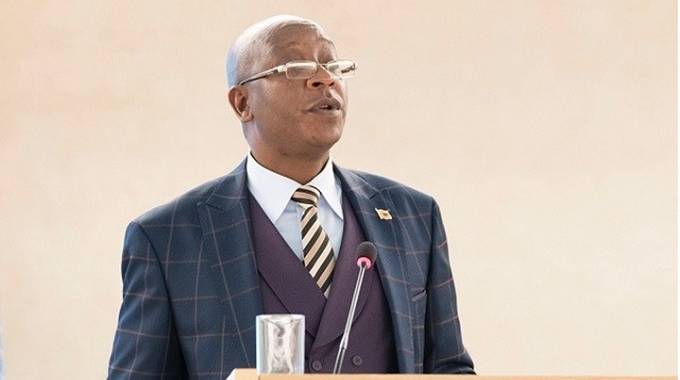
The Sunday News

Lincoln Towindo, Harare Bureau
Government is mulling disbanding two Constitutional commissions — the National Peace and Reconciliation Commission (NPRC) and the Zimbabwe Gender Commission (ZGC) — and subsume their core functions under the Zimbabwe Human Rights Commission (ZHRC) as part of a drive to eliminate the duplication of roles.
It is envisaged that the refreshed ZHRC will have “special interest commissioners” that will focus specifically on the roles that were exercised by both ZGC and the NPRC.
The proposed reforms are being considered by the Inter-Ministerial Taskforce that was recently set up to work on an omnibus Constitutional Amendment Bill that will deepen civil liberties and individual rights, including entrenching political, electoral and economic reforms.
Justice, Legal and Parliamentary Affairs Minister Ziyambi Ziyambi told our Harare Bureau that it was difficult to distinguish between gender issues and human rights.
“Strictly speaking, a gender commission is a human rights commission, so you cannot have a gender commission which is separate from a human rights commission,” said Minister Ziyambi.
“An economy like ours cannot afford or sustain two commissions that do basically the same things.
“Our thinking is that we have two commissions chewing into the fiscus but doing one and the same thing. We would rather have one commission which has those commissioners, and probably within the secretariat, you have a department that deals with gender issues.”
Section 232 of the Constitution provides for the establishment of five independent commissions, which also include the Zimbabwe Media Commission (ZMC) and the Zimbabwe Electoral Commission (Zec).
Authorities, however, believe that gender and conflict resolution issues are intrinsically human rights issues.
Minister Ziyambi said: “If you look anywhere in the world, there is nothing called a gender commission, but there are human rights commissions.
“The work that they do is more or less the same, they even attend the same international human rights conferences, but they do so separately . . .
“So what it means is the human rights commission in its present structure is being prohibited from dealing with gender equality issues because that function is the responsibility of the gender commission, which does not make sense.
“So whenever a human rights violation in relation to gender takes place, we are likely to see a fight between the two commissions in terms of who will investigate.
“We are not being efficient if we do that; I do not think the whole thing was well thought out.”
Minister Ziyambi said that Section 243, which outlines the functions of the ZHRC, and Section 246, which specify the mandate of the ZGC, have uncanny resemblances, with only the phrase human rights alternating with the word gender.
NPRC, he added, “is a creature of political compromise” made during the constitution-making process that preceded the 2013 referendum.
However, the present Constitution — which was adopted on May 22 2013 — has a sunset clause that provides for the automatic dissolution of the NPRC after 10 years of the adoption of the Constitution (2023).
“Even if you look at the NPRC, it is a creature of political compromise because some people during the constitution-making exercise thought they needed to deal with a specific issue of the Matabeleland disturbances.
“But to be honest, a commission that deals with early warning signs, conflict resolution and reconciliation the world over is the human rights commission,” he said.
He, however, said there was need for robust debate on the proposed amendments.
ZGC chair Ms Margret Mukahanana-Sangarwe said merging the two commissions was not in the best interest of women empowerment.
She said: “We do very different things; the Gender Commission deals with issues of gender, and the issues of gender equality are a very big issue in Zimbabwe and everywhere in the world.
“There is a lot to do about gender equality that is not covered by human rights, so to speak, so I would be surprised if they intend on doing that.”
NPRC chair Justice Sello Nare could not be reached by the time of going to print.



